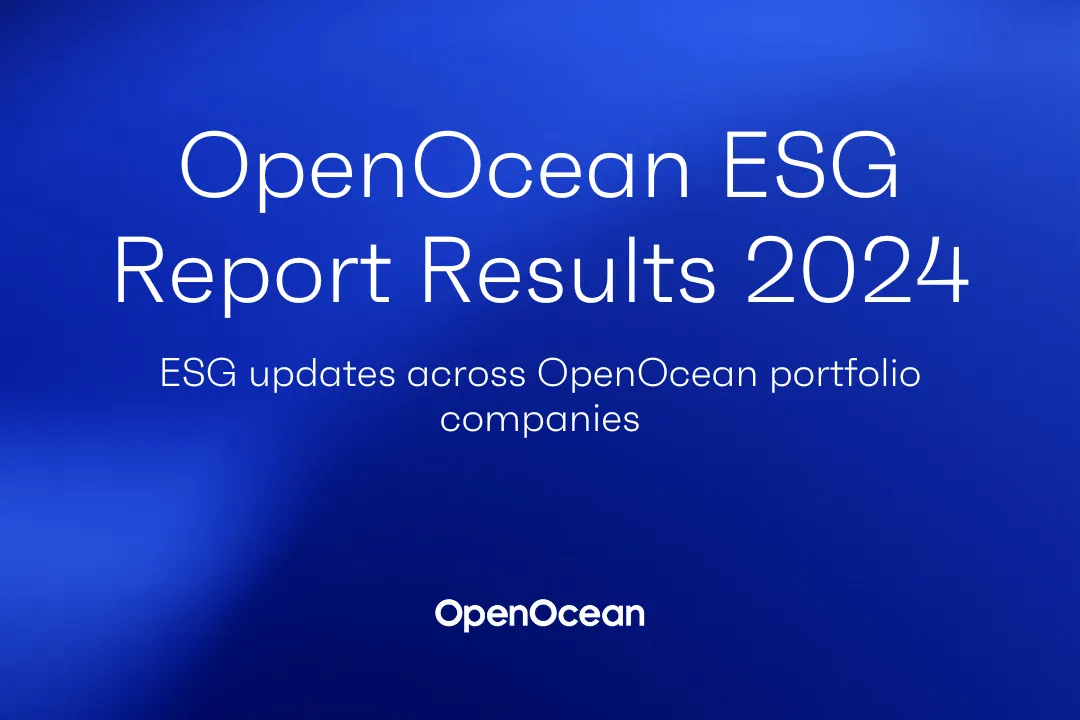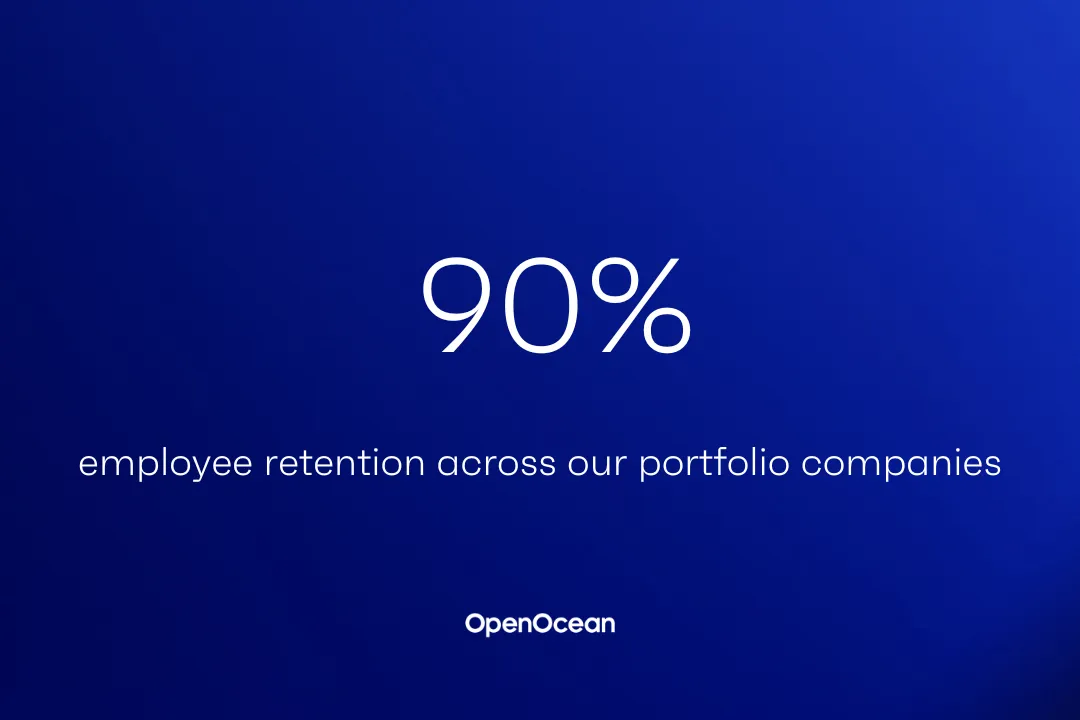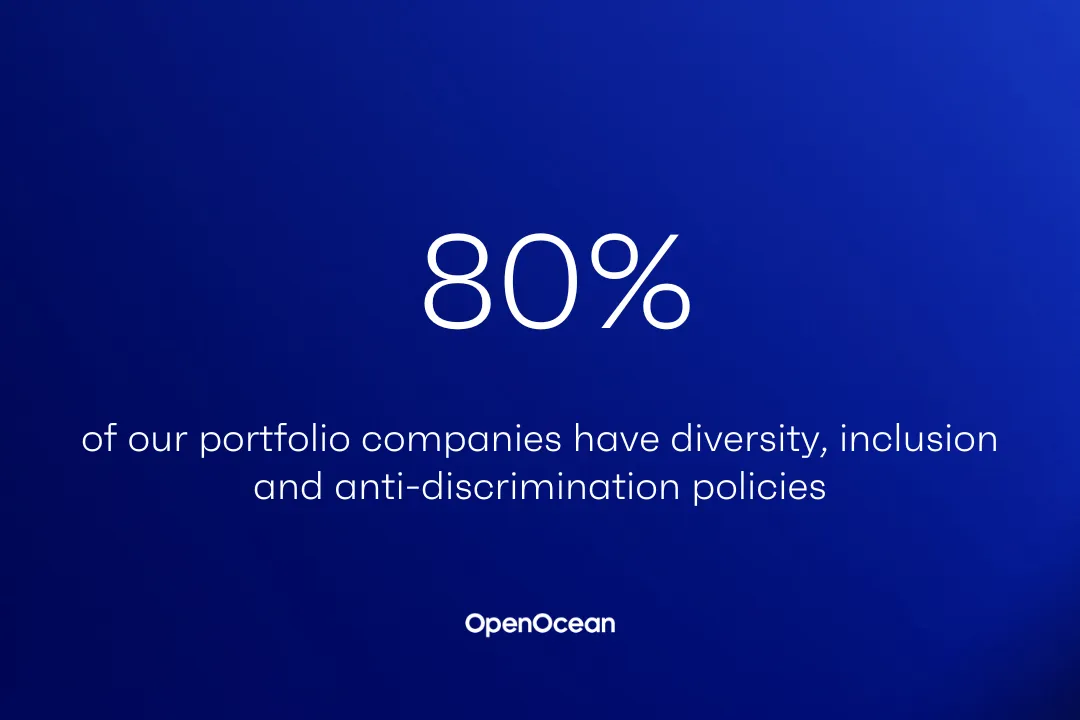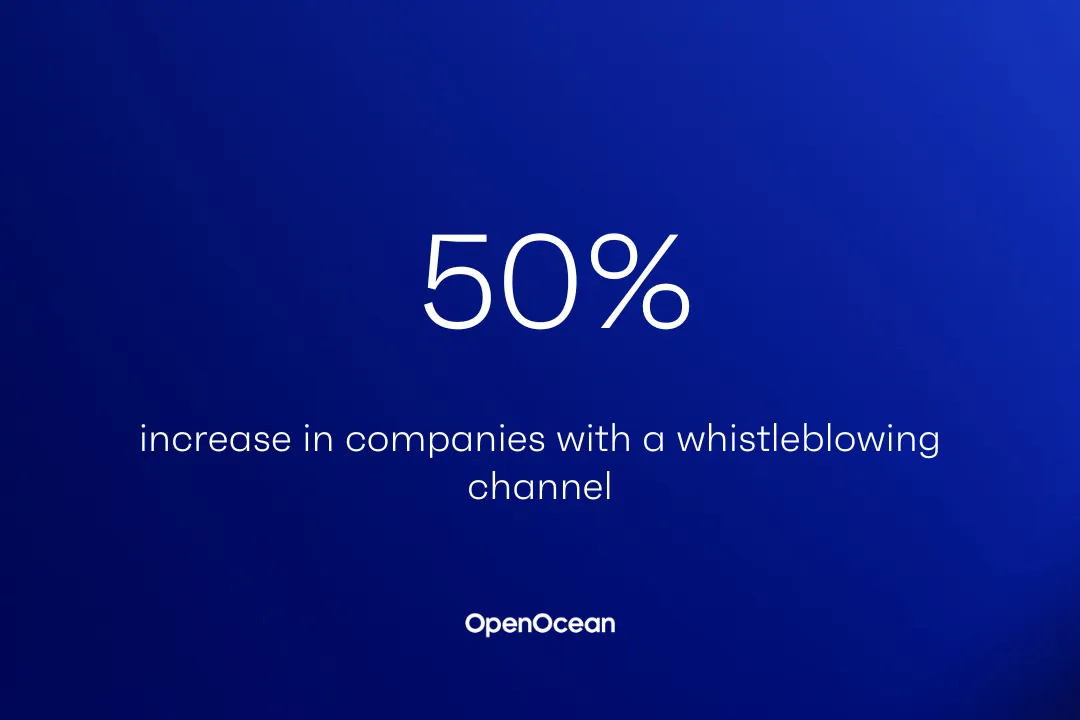
At OpenOcean we believe that data has the potential to create a better world for everyone. However, the companies, technologies, and people charged with that mission must be carefully selected and meaningfully equipped.
OpenOcean has invested in software companies that have created responsible software solutions since its inception. Our experience has shown that the most successful startups are often the most diverse, as increased viewpoints and representation drive enhanced complex problem-solving and can better meet rapid scaling demands.
We are happy to share the results of our 6th annual ESG report to unpack the current ESG statistics of our portfolio companies. We want to establish transparency and how we collectively can push for greater progress. Our ESG survey is based on our internally created ESG Starter Pack, which was first introduced in late 2022 and has seen several updates since.
“We’re deeply committed to making a positive impact through our ESG initiatives — whether it’s reducing our environmental footprint, ensuring business transparency, or especially supporting the engineering community.” - Strong Network, OpenOcean’s portfolio company
OpenOcean portfolio’s ESG updates
Last fall, we introduced a major revamp of our GreenHouse Gas Emission Calculator. The calculator helps startups understand their emissions and set initial greenhouse gas reduction targets. The tool is built to be as easy to use as possible, relying on metrics that companies can easily find and still give high accuracy on their emissions.
Our general partner Patik Backman published an article in The Next Web titled 5 Steps to Building an ESG-responsible Software Startup. The article highlights the five most important steps startups should take when implementing ESG, these being:
- Lay the ESG foundation from inception
- A lot of value is gained at the beginning of a startup life
- ESG implementation should reflect the stage of the company
- Continue building up ESG practices as the company grows
- ESG implementation is a continuous process
Results of the ESG survey

ESG maturity continued to stay at a high level within our portfolio, with many metrics seeing an improvement from last year. Notably, companies reported a 50% reduction in employee turnover, with employee retention now reaching 90%. We also see a significant increase in companies that have employee compensation guidelines implemented and measure their GHG emissions.

However, ESG maturity as identified by the companies dropped this year to an average of 2.62/5. We believe this is due to two key developments. First, several portfolio companies have started to prepare for CSRD (Corporate Sustainability Reporting Directive) reporting, which means re-evaluating processes and putting new ones in place. Second, the initial wave of ESG implementation is over, and companies are now looking to drive more value from ESG. Both of these factors have meant that companies have had to re-evaluate their ESG practices and noticed that there is still room to improve.

Diversity metrics among our portfolio companies remained strong and at the same level as in previous years. Companies report having an average of 11 nationalities, with the highest number being a whopping 40 nationalities. We saw a significant increase in companies with diversity, inclusion, and anti-discrimination policies set up; now, four in five companies report having one.

Social aspects remain the strongest area across the portfolio and we continue to see several improvements this year. Four out of five companies are conducting an employee NPS survey and have all compensation guidelines documented. Employee retention has also reached a very healthy 90%.

Governance aspects continue to remain a tricky area for startups, with lower maturity than E and S aspects. Partially driven by the fact that many aspects of corporate governance apply to larger companies. We do see some great improvements, such as a slight increase in companies conducting ESG training for their employees, a 50% increase in companies with a whistleblowing channel, and a doubling of companies that have started to measure their GreenHouse Gas emissions.
This year, we continue to observe similar challenges in ESG implementation. The most significant obstacles include having sufficient resources for ESG initiatives and balancing different values and priorities across a global workforce. On a positive note, we are pleased to see more companies considering the impact of their products and exploring ways to minimize it. Many are striving to reduce their carbon footprint by seeking low-carbon emission data centers and suppliers, though these efforts remain challenging.
“Any company listing or being acquired will need to have their ESG matters in check. We strongly recommend companies to start building their ESG foundation early to make it a core part of their culture and growth.” - Patrik Backman, OpenOcean GP
Want to find out how to strengthen your own ESG journey?
OpenOcean continues to support the wider startup community with resources to implement ESG. Our ESG Starter Pack helps companies and investors more smoothly navigate the ESG world. Further, our GreenHouse Gas Emission Calculator easily enables companies to start measuring their carbon footprint, based on common data points that they have available.
In addition to software companies, we warmly welcome fellow early-stage VCs to use the KPIs found in the Starter Pack as a starting point for reporting requirements set out by the EU Sustainable Finance Disclosure Regulation (SFDR) Article 8, which most European VC companies are expected to adopt.
The framework set out in the Starter Pack can help investors consolidate annual reporting requirements and create a common language on the most relevant ESG KPIs for early-stage software startups.
If you have any questions, feel free to contact us. We look forward to continuing the discussion on the topic with you!


